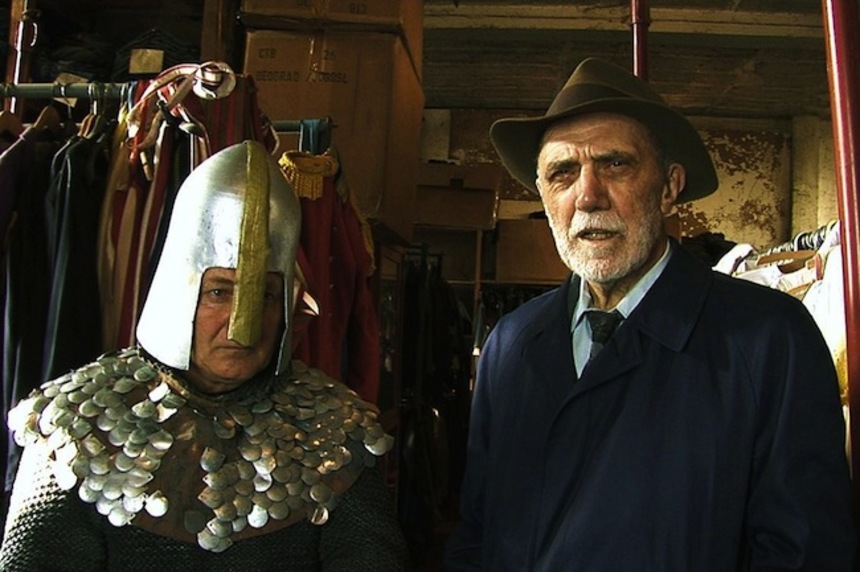Tribeca 2011 Review: CINEMA KOMUNISTO

Enter Yugoslavia, 1947: The birth of a new nation under the rule of heroic Communist legend now Marshal Josep Broz Tito. With a fortified youth beaming under blue skies, certified film buff Tito orders a world-class cinema city to be erected in this triumphant land. Planned to be the largest film production facility in Europe, the reality ends up being a bit different. Only one of the three planned studios is built but oh, is it world class. Over the next four decades Avala Film is to produce countless partisan war epics, domestic dramas and comedies, some productions rivaling and even luring Hollywood, all the while cultivating a talented crop of filmmakers and stars. This is ultimately their story, told by them in the present day, and Aleksandar Leka Konstatinovic, Tito's personal projectionist for 32 years. Turajilic's cameras capture a wistful glint in the eyes of these men as they regal us with the trials and tribulations of the Yugoslav film industry and Tito's own personal film habits; he watched a film every night, even the dead of night, staying up til dawn to finish it. Overall Leka presented over 8000 films to Tito.
Thankfully Cinema Komunisto does not end up being a total talking-head affair, as Turajilic has access to a seemingly endless mountain of newsreel and television footage and clips from the dozens of feature films our narrators talk about. It's a venerable gold mine for film lovers. The research and sleuthing just to amass such a catalog of footage to draw out into a tapestry such as this is one of the film's strongest suites.
Of course, covering so much ground in 100 minutes, and sticking to a very linear structure, does cause a few stumbles, which seems common to a lot of documentaries in their structural presentation. Turajlic turns serious to address the reality that was Yugoslavia but it feels rather late in the game. Still she and her subjects have mustered up enough goodwill throughout the entire picture that we travel willingly along to whatever conclusion they're making.
Tito's death in 1980 lifts the veil off this magical land called Yugoslavia and its glorious cinema. The affluent jet setting ways, the Hollywood-like glitz and glamor evaporate into thin air. Only Leka remains steadfast in his admiration for the Marshal. Though we've been witness to the crumbling walls of Avala studio for the entire picture - vast treasure troves of unused props and costumes rotting away, its projectors and editing bays rusting in dark, wet corners - only now do we see the collapse; the wary old men, the all but gone film industry. And still a sense of triumph lingers. Though the region's reality continued to be discontinuous and painful to frightening new heights, its history shady at best, its cinema stands triumphant as world class. And that's a testament to the human spirit if there ever was one.
Screens: April 21, 23, 25, 27

Do you feel this content is inappropriate or infringes upon your rights? Click here to report it, or see our DMCA policy.






